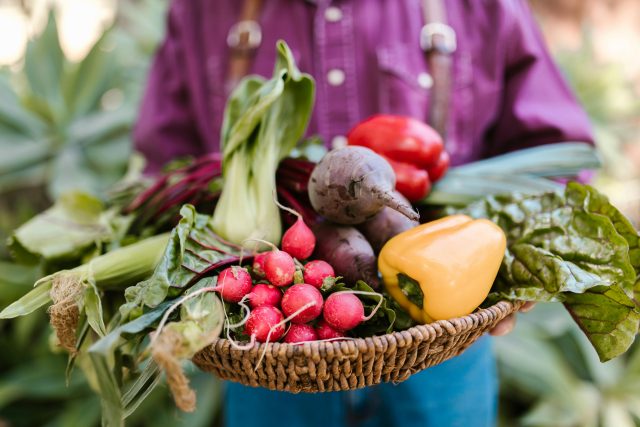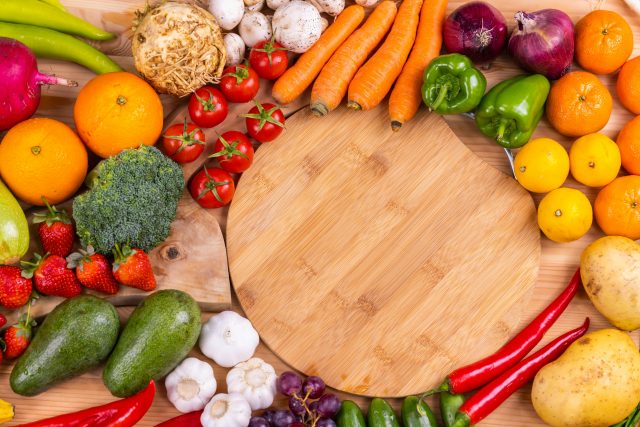HOW YOUTH & WOMEN IN KAJIADO ARE GROWING FOOD, INCOME & HOPE.
In Kenya’s arid and semi-arid lands (ASALs), agriculture is no longer just about survival, it’s becoming a pathway to resilience, dignity, and self-reliance.
At Future Community Concern Initiatives (FCCI), we work alongside young agripreneurs, women-led households, and smallholder farmers to unlock this potential through practical training and land-access programs in places like Isinya, Kajiado County.
This blog explores some of Kenya’s fastest-growing crops, for quick impact: food on the table, income in the pocket, and confidence in the future.
FROM IDLE LAND TO ACTIVE LIVELIHOODS: MARY’S STORY
Anastacia, a 24-year-old from Maili Tisa, joined FCCI’s youth training program with no prior farming experience. After leasing a 1 acre plot at our Isinya Model Farm, she planted spinach, sukuma wiki (kales), and amaranth.
Within 6 weeks, Anastacia was harvesting vegetables for sale at the local markets and supplying her neighborhood families.
Anastacia is just one of many youth turning dryland soil into a livelihood.
1. FAST-GROWING, CLIMATE-SMART CROPS FOR ASAL FARMERS
- Sukuma Wiki (Kales)
- Maturity: 4–6 weeks
- Why It Works: Grows fast, needs moderate watering, popular in every Kenyan meal
- Bonus Tip: Intercrop with onions to reduce pest pressure
- Spinach
- Maturity: 4–5 weeks
- Why It Works: Thrives in sack gardens or microplots; good market in towns
- Local Insight: Use cow manure and shaded beds to retain moisture
- Amaranth (Terere)
- Maturity: 3–4 weeks for greens; seeds by 8 weeks
- Why It Works: Drought-tolerant, highly nutritious, dual-use crop (leaf + grain)
- Cowpeas (Kunde)
- Maturity: 45–60 days
- Why It Works: Thrives in dryland, improves soil fertility, high demand locally
- Tomatoes
- Maturity: 60–90 days
- Why It Works: High-value, high-demand, especially if grown off-season
- ASAL Hack: Use mulching + trellising to reduce water stress and boost yield
2. REAL BARRIERS YOUTH FACE – AND HOW FCCI HELPS
| Challenge | How FCCI Supports |
| “I have no land” | Lease-a-plot programs at our model farm (from 1 acre) |
| “I lack training” | Practical, hands-on courses tailored for ASAL farmers |
| “I can’t afford irrigation” | Farm ready spaces with all amenities and water-sharing systems |
| “Markets are far or exploitative” | Aggregated marketing, farmer groups, and value chain training |
“Farming became real for me when I got my own small plot and the right training. I didn’t need millions, just support and a place to start.” – James, 26, Kisaju
4. LOW-COST, HIGH-IMPACT SOLUTIONS YOU CAN START WITH
- Farm-in-a-Sack (Sack Gardening): Grow spinach, kale, or herbs
- Shared Drip Irrigation: Group-based kits available at the model farm
- Agroforestry Add-ons: Plant moringa, pigeon peas, and fruit trees for shade + food
- Market Linkage: Get real-time prices to sell smarter
5. WHY THESE CROPS MATTER – BEYOND PROFIT
- Youth Skills Development – Learn transferable skills in irrigation, budgeting, and soil care
- Household Nutrition – Fresh, pesticide-free vegetables improve family health
- Water Smart Farming – Less water, more yield = resilience in drylands
- Women’s Empowerment – Flexible farming models work around household roles
- Soil Health – Crops like cowpeas and amaranth improve long-term soil fertility
6. REPURPOSE YOUR MINDSET: FROM LAND SCARCITY TO LAND ACCESS
You don’t need to own land to be a farmer or a greenhouse to make money.
You need the right crop, the right support, and a small space to start.</p>
At FCCI, we’re flipping the narrative:
From “waiting for capital” → to starting with support
From “agribusiness is for the rich” → to farming is for everyone
7. FAQ: STARTING AGRIBUSINESS IN KENYA’S ASALS
Q: I’ve never farmed before. Can I still join?
✅ Yes! Our training is beginner-friendly and practical.
Q: Do I need land to join the program?
✅ No. FCCI offers plot leasing at affordable rates.
Q: What can I grow in a small plot or sack garden?
✅ Spinach, terere, onions, herbs, and even tomatoes.
Q: Do I need irrigation?
✅ Not always, but FCCI provides shared irrigation piping, drip kits and water-smart methods.
READY TO BEGIN?
We’d love to keep you in the loop! Let us know if you’d like updates on our upcoming farming trainings or lease-a-plot opportunities at the FCCI Model Farm in Isinya. Whether you’re a farmer, donor, youth group, or development partner, you can be part of this transformation.
📍Visit our Climate-Smart Model Farm in Isinya
📞 Call/WhatsApp: +254-721-472628
Email: hello@futureconcern.org
Visit our website: https://futureconcern.org/
Follow us on TikTok, Facebook, YouTube, X, Linkedin, Instagram



